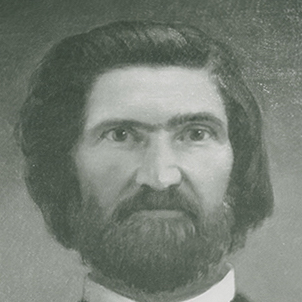 In 1896, what is now Wingate University in Wingate, North Carolina, was named for Washington Manly Wingate, a two-time president of Wake Forest University from 1853 to 1862, and then after the Civil War from 1866 until his death in 1879. “Wingate” was suggested as the name of the new school 17 years after Wingate’s death by the son of an inaugural trustee, who was teaching at Wake Forest at the time. Wingate has operated as a private high school, a two-year college, and granted its first bachelor’s degree in 1979. Graduate programs were added in the 1980s.
In 1896, what is now Wingate University in Wingate, North Carolina, was named for Washington Manly Wingate, a two-time president of Wake Forest University from 1853 to 1862, and then after the Civil War from 1866 until his death in 1879. “Wingate” was suggested as the name of the new school 17 years after Wingate’s death by the son of an inaugural trustee, who was teaching at Wake Forest at the time. Wingate has operated as a private high school, a two-year college, and granted its first bachelor’s degree in 1979. Graduate programs were added in the 1980s.
Today Wingate University enrolls about 2,700 undergraduate students and approximately 1,000 graduate students. African Americans make up 20 percent of the undergraduate student body.
In 2018, Wingate University asked three employees to look into whether any buildings, monuments, or statues around campus were named after anyone with egregious pasts. During a review of publicly available resources, nothing was uncovered that would reveal that any namesakes had ties to slavery. But researchers at Wake Forest University dug deeper.
On May 7, Wake Forest University announced it would rename a portion of its Wait Chapel from Wingate Hall to May 7, 1860 Hall. The date reflects when 16 enslaved people were sold to fund Wake’s initial endowment under the leadership of then-president Washington Manly Wingate. Researchers at Wake Forest University also determined that “every president of Wake Forest until the Civil War had enslaved human beings under him.”
Rhett Brown, president of Wingate University issued a statement which read in part: “This truth hurts. It casts a shadow over our university, my alma mater, and is not in keeping with who we are today, what we value, and how we strive to be more inclusive for the students who study here and the people who work here. Knowing that the stain of past transgressions can never be eliminated and that the debt to people of color can never be repaid, Wingate University officials do believe this deeply upsetting news can serve as an opportunity for reflection, reconciliation, and growth.”
President Brown is assembling a group of faculty, staff, students, alumni, trustees, town officials, and other key individuals to determine what steps should be taken as a result of these latest revelations about the university’s namesake.

